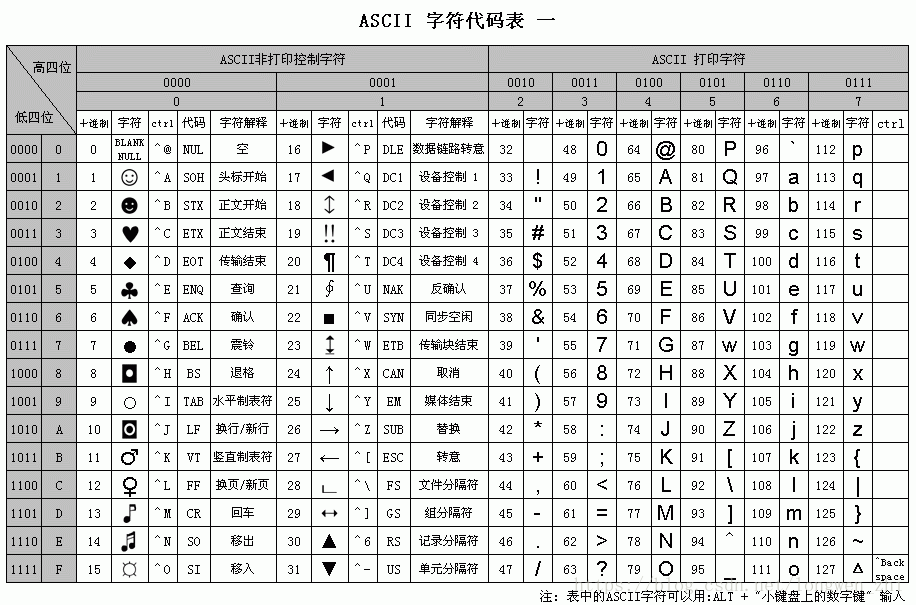Python Programming
Lecture 7 Variable Scope, File
7.1 Variable Scope
Variable Scope (变量的作用域)
In Python, module, class, def, lambda can introduce new variable scope, if/elif/else/, try/except, for/while will not introduce new variable scope.
if True:
msg = 'I am from Shanghai'
print(msg) # We can use msg.
def test():
msg = 'I am from Shanghai'
print(msg) # error
Global and Local(全局和局部)
msg_loc = "Shanghai" # Global
def test():
msg = 'I am from Shanghai' # Local
New Assignment
msg = 'I am from Shanghai'
def test():
msg = 'I am from Beijing'
print(msg)
test()
print(msg)
I am from Beijing
I am from Shanghai
Reference(引用)
msg = 'I am from Shanghai'
def test():
print(msg)
test()
I am from Shanghai
Referenced before assignment
msg = 'I am from Shanghai'
def test():
print(msg)
msg = 'I am from Beijing'
test()
UnboundLocalError: local variable 'msg'
referenced before assignment
-
How to modify the variable outside? The global keyword
num = 1
def fun():
global num
num = 123
print(num)
fun()
print(num)
123
123
num = 1
def fun():
print(num)
global num
num = 123
print(num)
fun()
SyntaxError: name 'num' is used
prior to global declaration
a = 10
def test():
a = a + 1
print(a)
test()
UnboundLocalError: local variable 'a'
referenced before assignment
a = 10
def test():
global a
a = a + 1
print(a)
test()
11
a = 10
def test():
a = 10
a = a + 1
print(a)
test()
print(a)
11
10
mutable vs. immutable
a = [1,2,3]
def test():
print(a)
a = [1,2,3,4]
test()
UnboundLocalError: local variable 'a'
referenced before assignment
a = [1,2,3]
def test():
print(a)
a.append(4)
test()
print(a)
[1, 2, 3]
[1, 2, 3, 4]
a = {"color": "green"}
def test():
print(a)
a["color"] = "red"
a["position"] = "left"
test()
print(a)
{'color': 'green'}
{'color': 'red', 'position': 'left'}
Parameter and Argument
-
For mutable objects (like lists and dictionaries), assigning a new value to a variable inside a function will not change the original variable outside the function. (the same with immutable objects!)
def changeme(mylist):
mylist = [1,2]
print("inside: ", mylist)
x = [10,20]
changeme(x)
print("outside: ", x)
inside: [1, 2]
outside: [10, 20]
-
However, modifying the contents of the mutable object (e.g., adding elements to a list or updating a dictionary) can change the value of the variable outside the function.
def changeme(mylist):
mylist.extend([1,2])
print ("inside: ", mylist)
x = [10,20]
changeme(x)
print ("outside: ", x)
inside: [10, 20, 1, 2]
outside: [10, 20, 1, 2]
7.2 File
Reading from a File
-
pi_digits.txt
3.1415926535
8979323846
2643383279
from pathlib import Path
path = Path('pi_digits.txt')
contents = path.read_text()
contents = contents.rstrip()
print(contents)
3.1415926535
8979323846
2643383279
File Path
-
relative path
path = Path('text_files/filename.txt')
-
absolute path
path = Path('/home/eric/data_files/text_files/filename.txt')
path = Path('c:/text_files/filename.txt')
path = Path(r'c:\text_files\filename.txt')
path = Path('c:\\text_files\\filename.txt')
path = Path('c:\text_files\filename.txt') #error
-
Making a List of Lines from a File
from pathlib import Path
path = Path('pi_digits.txt')
contents = path.read_text()
lines = contents.splitlines()
print(lines)
-
Working with a File's Contents
pi_string = ''
for line in lines:
pi_string = pi_string + line
print(pi_string)
print(len(pi_string))
['3.1415926535', '8979323846', '2643383279']
3.141592653589793238462643383279 # string
32
Writing to a File
from pathlib import Path
path = Path('programming.txt')
path.write_text("I love programming.")
-
Python can only write strings to a text file. If you want to store numerical data in a text file, you'll have to convert the data to string format first using the str() function.
from pathlib import Path
contents = "I love programming.\n"
contents += "I love creating new games.\n"
contents += "I also love working with data.\n"
path = Path('programming.txt')
path.write_text(contents)
I love programming.
I love creating new games.
I also love working with data.
Encoding(计算机编码)
from pathlib import Path
path = Path('alice.txt')
contents = path.read_text(encoding='utf-8')
Character Encoding: ASCII, Unicode, UTF-8, GBK

- Unicode把所有语言都统一到一套编码里。Unicode标准也在不断发展,但最常用的是用两个字节表示一个字符(如果要用到非常偏僻的字符,就需要4个字节)。现代操作系统和大多数编程语言都直接支持Unicode。
- UTF-8编码把一个Unicode字符根据不同的数字大小编码成1-6个字节,常用的英文字母被编码成1个字节,汉字通常是3个字节,只有很生僻的字符才会被编码成4-6个字节。
- 在计算机内存中,统一使用Unicode编码,当需要保存到硬盘或者需要传输的时候,就转换为UTF-8编码。
chinese = '你好'.encode('utf-8')
print(chinese) # 输出:b'\xe4\xbd\xa0\xe5\xa5\xbd'
#这是字节串(是bytes,不是字符串!)用16进制是为了方便阅读,\x是16进制的前缀
print(len(chinese)) # 输出 6(每个汉字占 3 字节)
b'\xe4\xbd\xa0\xe5\xa5\xbd'.decode('utf-8') # 输出:你好
- Two-dimensional code, QR code
import qrcode
img=qrcode.make("Hello!")
img.save("x.png")
import qrcode
img=qrcode.make("https://wangwanglulu.com/")
img.save("wl.png")

JSON
- JSON (JavaScript Object Notation, pronounced /ˈdʒeɪsən/; also /ˈdʒeɪˌsɒn/) is an open standard file format and data interchange format that uses human-readable text to store and transmit data objects consisting of attribute–value pairs and arrays (or other serializable values). It is a common data format with diverse uses in electronic data interchange, including that of web applications with servers.
- JSON is a language-independent data format. It was derived from JavaScript, but many modern programming languages include code to generate and parse JSON-format data. JSON filenames use the extension .json.
- json.dumps() and json.loads()
from pathlib import Path
import json
numbers = [2, 3, 5, 7, 11, 13]
path = Path('numbers.json')
contents = json.dumps(numbers)
path.write_text(contents)
from pathlib import Path
import json
path = Path('numbers.json')
contents = path.read_text()
numbers = json.loads(contents)
print(numbers)
[2, 3, 5, 7, 11, 13]
Reading Multiple Lines in JSON file
from pathlib import Path
import json
path = Path('yelp_sample.json')
contents = path.read_text() # 读取整个文件为一个字符串
lines = contents.splitlines() # 按行拆分,每一行是一个独立的 JSON 对象字符串
yelp = []
for line in lines:
yelp.append(json.loads(line)) # 把每一行的 JSON 字符串解析成字典对象
print(len(yelp))
print(yelp[100])
Reading Multiple text file
import os
from pathlib import Path
from textblob import TextBlob #pip install
folder_path = "marvel/"
summary = []
for filename in os.listdir(folder_path): #列出所有文件
# 组成相对路径
path = Path(os.path.join(folder_path, filename))
contents = path.read_text(errors="ignore") #不确定文件编码但是不报错
lines = contents.splitlines()
scores = []
for line in lines:
line = line.strip()
if line:
# 看看这一行话的情绪是正面、负面,还是中性(+1到-1)
polarity = TextBlob(line).sentiment.polarity
scores.append(polarity)
if scores:
average = sum(scores) / len(scores)
summary.append((average, filename))
summary.sort()
for score, movie in summary:
print(movie, score)
Exercise
- 读取《权力的游戏第一季》的所有台词,并将所有台词文字放到一个列表中。下载:权力的游戏第一季台词json文件
- 分析权游第一季台词的情绪是正面、负面,还是中性(+1到-1)
Summary
- Functions
- Reading: Python for Everybody, Chapter 4
- Reading: Python Crash Course, Chapter 8, 10